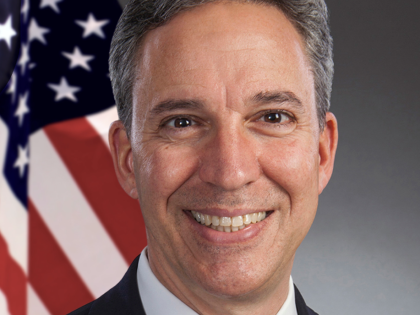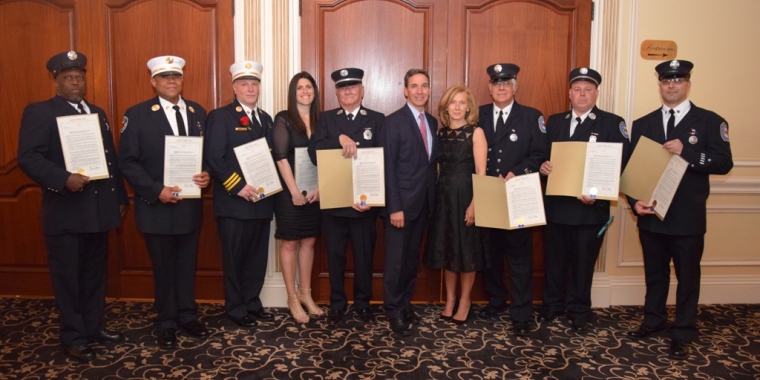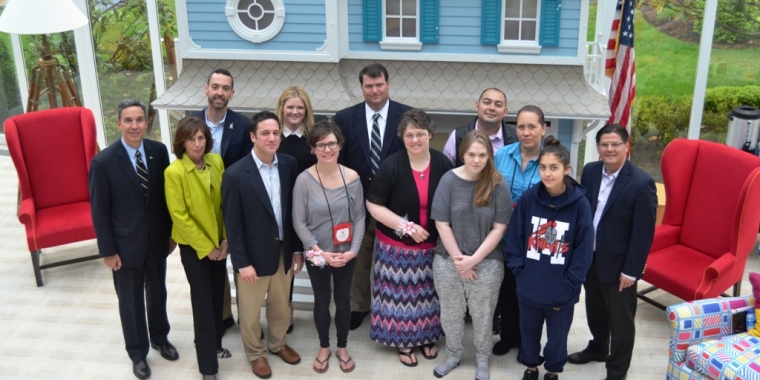
From the Desk of Senator Jack M. Martins
Jack M. Martins
February 17, 2015
-
ISSUE:
- Health
Bend the Curve
No doubt you’ve heard about the recent measles outbreak that has infected more than 100 people in 14 states in just five weeks. While that doesn’t sound like many, it’s disturbing when you consider that all of last year saw just 644 cases, which was already a six fold increase over years past. It’s likely the disease will now spread although I remain confident that our healthcare professionals will get it under control. Additionally worrisome is that my colleagues and I in the state legislature find ourselves in a surprising position: to be partners in the vaccination effort or to oppose it. You see, the outbreak has put the vaccination debate front and center throughout the country, even here in New York.
While many (not all) states have seized the occasion to try and strengthen vaccination requirements, some members of the New York Legislature have proposed allowing parents to opt their children out of vaccinations based on “personal objections.” I liken this timing to throwing our oars overboard as soon as our raft hits the rapids. Nonetheless, these respected colleagues feel strongly about their proposal so it merits discussion.
New York State currently requires children in kindergarten on up to be vaccinated against nine communicable diseases via five sets of injections spread out over a number of years. While we allow for some religious exemptions and of course medical waivers for those whose immunity may be compromised, we have never allowed philosophical exemptions. There just isn’t enough good scientific research to prove inoculations are more dangerous than they are beneficial. As lawmakers we strive for balance: achieve the most common good while protecting individual rights. But in this scenario, declining to vaccinate a child puts far too many others in danger, especially those who are already at risk, like seniors and babies. These are not “harmless diseases.” Even measles killed 145,000 people around the world last year alone. It is in that light that I will vote against any proposal to change our current standards should it come to the Senate floor.
But I am a dad first and foremost so I am sympathetic to parents’ concerns, particularly those fueled by nagging fears of a link between autism and vaccinations. While I believe there’s overwhelming scientific evidence that disproves the theory, I also acknowledge that this debate is the true heart of the matter. As of yet, no one can give us a reasonable explanation for the soaring rates of autism among our country’s children. The reality is we have a real health crisis on our hands – a growing number of autistic children who will forever need specialized care, long after their parents are gone – with no answers.
In 2011, New York passed a law enabling these individuals to receive insurance coverage for screening, diagnosis and treatment. The law, which I cosponsored, saves families tens of thousands of dollars a year in out of pocket costs for autism treatment and therapies which many insurance companies refused to cover. It’s a very positive step, but it’s just that; a step. I just can’t help but wonder: if we can eradicate devastating diseases like measles, polio and smallpox (the most destructive disease in human history), can we not band together to cure autism?
Why not make autism our fight and bring the world’s leading minds here to lead the way in treatment and research? On Long Island alone we have some of the most cutting-edge scientific and medical facilities in the world: Cold Spring Harbor, Brookhaven National, Stony Brook University, and the Feinstein Institute, not to mention one of the most educated labor forces in the world with resources and infrastructure at the ready. And New York has a $5 billion dollar surplus. I’ll ask you what I asked Governor Cuomo: shall we consider using part of that surplus toward autism research? Even a fraction could reverse the tide.
At a time when everyone talks of investment and job creation, the opportunity to invest in research in a truly meaningful way, leverage the resources of our Long Island economy, and utilize the workforce we have to bend the curve on this insidious disease is too important to pass up. We should make this a priority.
I offer a quote by author Elbert Green Hubbard:
A little more persistence, a little more effort, and what seemed hopeless failure may turn to glorious success. There is no failure except in no longer trying. There is no defeat except from within, no really insurmountable barrier save our own inherent weakness of purpose.
Neighbors, the challenge is great but if not here, where? If not us, who?
Share this Article or Press Release
Newsroom
Go to Newsroom
